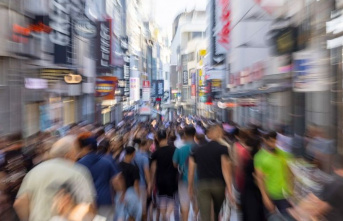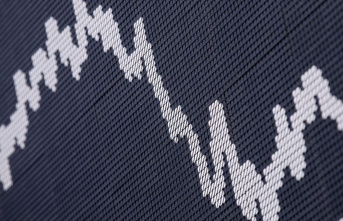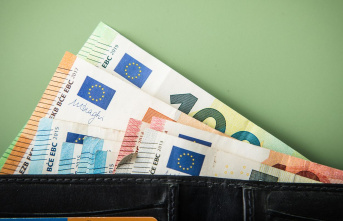The fight against unnecessary plastic waste is a difficult one. A new packaging law should actually bring him forward in 2023. Among other things, it stipulates that many delivery services, caterers and restaurants must offer both disposable and reusable containers for food and drinks "to go". But although the obligation has been in effect since January 1st, many catering establishments do not comply, as research published by Greenpeace a few weeks ago showed.
Now the environmental protection organization is increasing public pressure: on Wednesday, Greenpeace launched a new reporting portal where you can blacken catering establishments that don't follow the rules. Anyone who discovers a shop that does not offer a reusable alternative to disposable plastic packaging or to-go cups can enter the shop's data there. These are then forwarded to the competent state authority, which is to punish the violations.
With its reporting portal, Greenpeace is targeting snack bars, restaurants, bistros, cafés, canteens, delivery services, petrol stations and fresh food counters in supermarkets that sell food to go in plastic packaging. Since the beginning of the year, you must also - not exclusively - offer a reusable option. There must also be a reusable alternative for to-go beverage cups – regardless of whether they are made of plastic or other disposable material. However, the obligation to offer multiple items does not apply to small businesses with a maximum of five employees and a maximum sales area of 80 square meters (unless they belong to a large chain).
In a nationwide sample of almost 700 companies, Greenpeace found in January that more than half did not comply with the new reusable rules. Test visits by Deutsche Umwelthilfe to branches of large supermarket, bakery and cinema chains had also shown that ten out of 16 chains were breaking the law.
The Dehoga restaurant association had nevertheless made critical comments about the Greenpeace reporting portal in advance. The German Association of Towns and Municipalities also pointed out to the DPA that it was a fairly young obligation, with which the regulatory authorities had a certain initial tolerance. Greenpeace, on the other hand, emphasized when presenting the reporting portal: "The take-away industry had two years to adapt to the new legal regulations."
In principle, Greenpeace does not go far enough with the obligation to offer reusable packaging, which also allows for one-way packaging. "Reusable must not be a nice alternative, but the new must become normal - from the supermarket to online trading," writes Greenpeace. In addition, the organization demands that not only plastic packaging, but also cardboard, paper and aluminum should be replaced by reusable packaging. In addition, there is no standardized deposit system, as there is already for example with mineral water bottles.
Sources and further information: Greenpeace (reporting portal) / Federal Government (Packaging Act)







